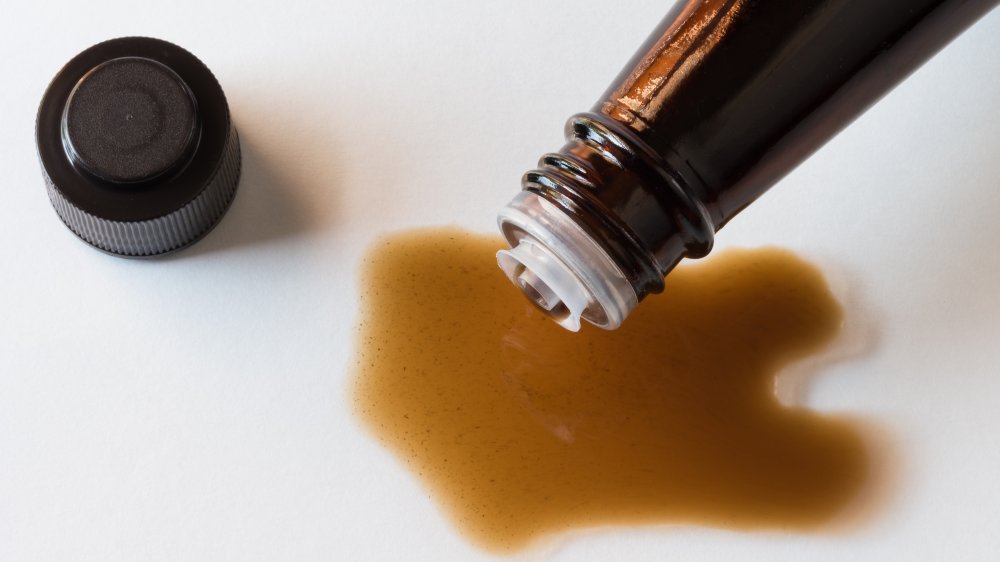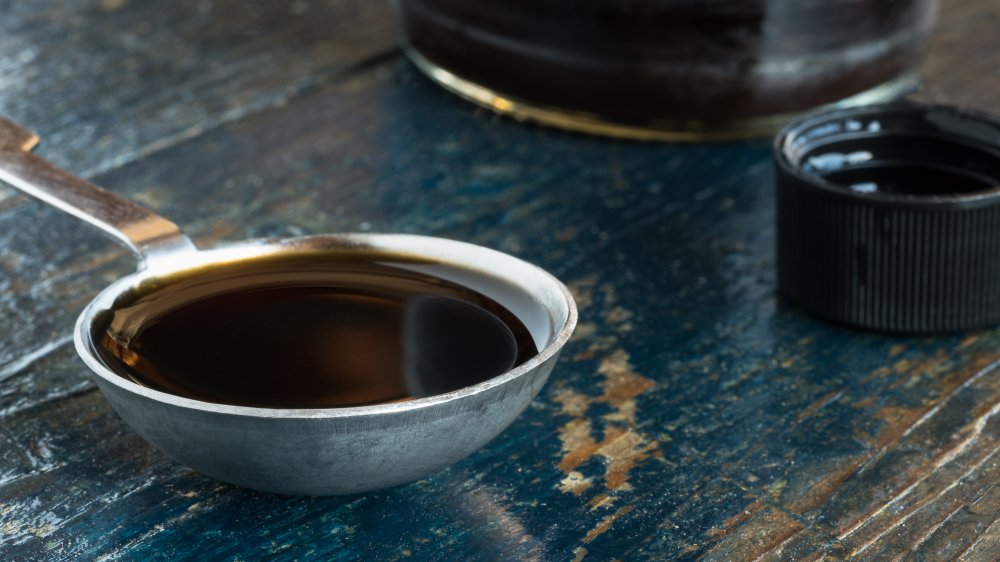The Surprising Origin Of Worcestershire Sauce
Although no one is truly sure how to pronounce it, we at least know where Worcestershire sauce came from. In 1835, Lord Sandys, a British nobleman, returned back to his hometown of Worcester after a stint overseas governing the Bengal region of India (via BBC). When he got home, he missed the taste of an Indian sauce he enjoyed while in Bengal and commissioned his local chemists to come up with a substitute.
Though the chemists, John Lea and William Perrins, planned to keep a share of the sauce to market it to their customers, the sauce, made with fish and vegetables, was far too pungent. For some reason, instead of tossing it, they decided to store it in the basement and forgot about it until a few years later when they came across it during a spring cleaning. The aging had done the sauce well. While in the barrel, it had mellowed out and acquired a great deal of flavor. The chemists rejoiced and began selling the aged version of the sauce to their customers.
Worcestershire sauce begins to reach far and wide
The sauce became a hit and was used in Britain primarily as a steak sauce, and Lea and Perrins soon exported their creation across the world. The bottles were wrapped in paper to protect them during their voyage at sea and continue to be paper-wrapped to this day.
Records show that Worcestershire sauce was the first commercially bottled condiment to be brought to the United States, with the first shipment arriving in the harbors of New York in 1839 (via The Spruce Eats). Though the recipe has been kept a secret, Lea and Perrins put some of the ingredients used on the original bottle. They included (but weren't limited to): two types of vinegar, malt and spirit, anchovies, salt, sugar, molasses, onions, garlic, and tamarind extract.
The trademark on the name has since expired and a number of different companies make their own blend of Worcestershire sauce, but the original Lea & Perrins sauce can be found in more than 75 countries across the world including El Salvador, Hong Kong, and Spain.

